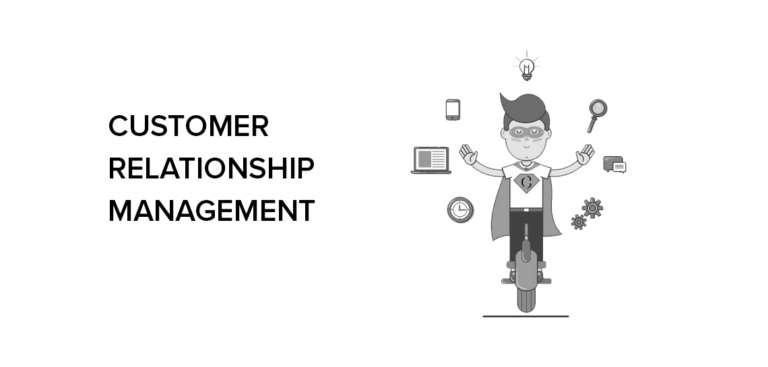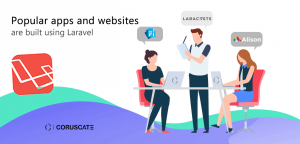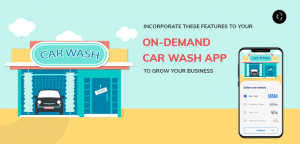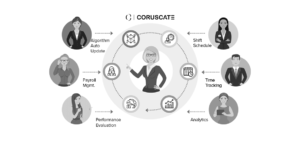CRM Solutions: A Robust System That Designed To Empower Your Business Sales

We operate within a global economy that buys, sells and communicates in countless ways. Our competitors are everywhere and the barriers to market entry are low, increasing competitive intensity. Commoditization is happening with breathtaking speed and If your organization is missing a usable customer database, it’s a sign that you need a CRM Solutions or robust system.
What is CRM?
Customer Relationship Management (CRM) is the process of tracking and analyzing all of the interactions you have with your customers and prospects. CRM software is a tool that centralizes, simplifies, secures, and scales our customer engagement.
CRM software enables you to stay connected with them, streamline sales and after-sales processes, and improve profitability.
According to a Gartner report, CRM became the largest software market in 2017 and continues to grow at a rapid pace. So what’s in it for you?
How Custom CRM Solutions Help Your Business?
When your business first started, tracking customers by email, address books and spreadsheets made sense.
But now your company is growing – and more growth means more opportunity to change how you run your business. Right now:
Spreadsheets are hard to update, interpret, and keep in sync with your team.
Valuable customer information hides in your employees’ inboxes.
Notes get lost or thrown away.
Customer communication is inconsistent between your employees.
The real problem is that your most important data is spread across multiple systems and people, making it difficult to leverage your information and collaborate on sales.
This is where CRM comes into play.
Why is CRM System Is Important For Your Business?
Many experts believe customer acquisition is five times costlier than selling to your existing customer base. It’s much easier to sell to someone who already has used your product and know you.
In doing so, CRM strengthens your revenue stream and ensures constant income even while you seek out new customers. In fact, a Forbes article cited that 80% of customers do not buy again from a company even if they’re satisfied. Why so?
The article said many companies don’t engage their customers and build lasting relationships with them. Instead of just looking outwards for sales, CRM helps you look inwards for opportunities right under your nose.
CRM = Improve Business
Likewise, in the age when customers are highly connected and demand real-time response, companies turn to CRM to provide personalized engagement amidst their thousands, if not hundreds of thousands or more, of customers.
Benefits of CRM System
It’s a place to store all of your clients’ information in one place, that’s easy to update and share with the whole team. The best CRM systems also save any updates immediately.
Every member of your team will be able to see the exact point when your business last communicated with a client, and what the nature of that communication was. Do they need an immediate follow-up call? Does the relationship need a little rekindling?
CRM can give you instant metrics on various aspects of your business automatically. Some programmes can even generate reports for you. If you have a complete and detailed CRM then you’ll be able to use this data to forecast and plan for the future.
You will be able to see the complete history of your company’s interaction with a client. Perhaps this can be a guide to how to approach future customers or give you a run-down of where things went wrong if the interaction was unsuccessful.
A good CRM will also be integrated with your calendars and diaries, relating important events or tasks with the relevant client. It can also suggest suitable times to contact a customer and set reminders.
What are the Core Features of CRM Software?
At its core, a CRM system is built to track, organize, and engage your customers. The following are key features found in a CRM tool:
1. Contact Management
Records and retrieves customer details. These include first-contact transactions and current engagement. Conversations and social mentions are likewise associated with specific customer profiles.
2. Reporting and Analytics
Mines and consolidates volumes of customer data for analysis. Reporting features let you generate documents highlighting the insights discovered from data mining and consolidation.
3. Tasks and Deals Management
Tracks deals across sales stages, from initial lead to conversion. Tasks are also associated with relevant deals.
4. CRM Mobile App
Most CRM systems have mobile apps with scaled down features. The mobile CRM app is useful when you’re out of the office and need to access reports, customer data or enter information on the go.
5. Customization
Allows you to configure processes based on your workflows. Customization tools also let you slice and dice data how you want it or generate reports based on your metrics.
6. Ease of Use
CRM systems especially cloud-hosted are designed for a code-free experience. Drag-and-drop tools, intuitive navigation, easily accessible features, and smart tutorials help you walk through the system with little trouble.
What Can CRM Do for Business?
When your business first started, tracking customers by email, address books and spreadsheets made sense.
But now your company is growing and more growth means more opportunity to change how you run your business. Right now:
Spreadsheets are hard to update, interpret, and keep in sync with your team.
Valuable customer information hides in your employees’ inboxes.
Notes get lost or thrown away.
Customer communication is inconsistent between your employees.
The real problem is that your most important data is spread across multiple systems and people, making it difficult to leverage your information and collaborate on sales.
This is where CRM comes into play.
The Future of CRM
Hence, the future of CRM predicts that the customer experience can be enhanced through the use of CRM systems which used online, mobile and social data as well as traditional touch-points.
The companies such as Pizza Hut and Domino’s are able to identify individuals rather than just households, through tackling social and mobile data, enabling them to target and create specific, timely offerings to maximize conversions.
As channels or platforms change, the art of CRM doesn’t. Good CRM should be practiced whether it’s through digital means or traditional methods.
What’s Next?
Now that you know how CRM brings value to your business, what to consider when evaluating different CRMs, and if your business is ready to adopt one, it’s time to start evaluating your options.
Coruscate has already developed a CRM system for jewelry industry and gave client the best CRM solutions to empower the customer acquisition.
For further details fill out the contact form to get in touch with our CRM experts. We’ll be happy to answer any questions about how Coruscate could drive the growth of your business.








